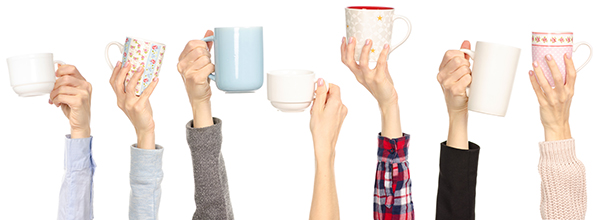Several studies suggest that a negative mood once in a while can have some benefits.…
The Pros and Cons of Drinking Coffee

Whether dark, blonde, decaf, or espresso, your daily cup of coffee carries some unexpected health benefits. Just remember to enjoy your java in moderation.
The debate has lasted for years: Is coffee actually good for you, or is it just a vehicle for cream and sugar? The truth lies somewhere in the middle. Scientists have found many health benefits linked to coffee consumption, but it’s important to keep an eye on the amount you drink each day.
Joe Pros
In the early 1990s, the International Agency for Research on Cancer (IARC) labeled coffee a possible cancer-causing agent, but the agency has since changed its tune. In 2016, the IARC dropped coffee from its list of possible carcinogens after studies found the beverage had no concrete link to bladder, breast, prostate, or pancreatic cancer.
Coffee has been linked to many health benefits, including:
- Prevention of cell damage and improved blood sugar control, thanks to antioxidants
- Increased alertness and concentration due to caffeine
- Protection against gallstones
- Reduced risk of Type 2 diabetes, heart disease, stroke, Parkinson’s disease, and Alzheimer’s disease
Coffee Cons
Despite coffee’s health benefits, it’s important not to overdo it with your daily intake. If you like your coffee with cream and sugar, the added calories can add up quickly. The caffeine in coffee can also be detrimental to your health if you drink too much of it. Tolerance levels vary by person, however, and different amounts can cause negative side effects.
Health risks from coffee include:
- Caffeine withdrawal if you decide to stop drinking coffee, which can cause headaches, irritability, drowsiness, and nausea
- Insomnia, headaches, dizziness, restlessness, rapid heart rhythm, dehydration, or anxiety if you consume too much caffeine
- Weight gain due to calories from milk, cream, and sugar, which can increase your risk of Type 2 diabetes, heart disease, and certain cancers
If you regularly consume one to three cups of mildly sweetened or unsweetened coffee in the morning or early afternoon, you’re likely reaping a few benefits. However, if you’re not a coffee drinker, don’t fret. You can gain many of the same health benefits by consuming a diet rich in fruits and vegetables and pursuing an active lifestyle.
Have you given up coffee and are now experiencing severe symptoms you think may be from caffeine-withdrawal? Schedule an appointment with your primary care provider.



